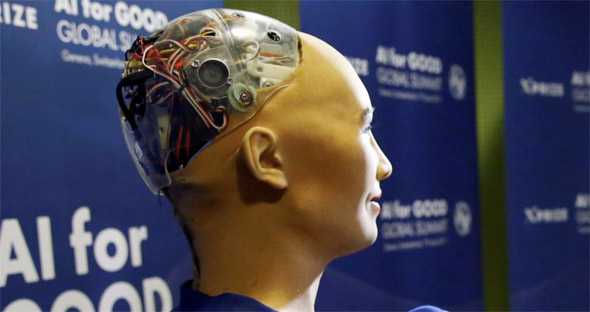Aligning AI with basic human values
"Each of the AI features has the potential to move civilization forward in progressive ways. But without adequate safeguards or the incorporation of ethical considerations, the AI utopia can quickly turn into dystopia."

"Each of the AI features has the potential to move civilization forward in progressive ways. But without adequate safeguards or the incorporation of ethical considerations, the AI utopia can quickly turn into dystopia."
Commentary by Darrell M. West
Vice President and Director
Governance Studies, Brookings Institute
This report is part of "A Blueprint for the Future of AI," a series from the Brookings Institution that analyzes the new challenges and potential policy solutions introduced by artificial intelligence and other emerging technologies.
Few concepts are as poorly understood as artificial intelligence. Opinion surveys show that even top business leaders lack a detailed sense of AI and that many ordinary people confuse it with super-powered robots or hyper-intelligent devices. The lack of clarity around the term enables technology pessimists to warn AI will conquer humans, suppress individual freedom, and destroy personal privacy through a digital “1984.”...
Since the 1950s, scientists have argued over what constitutes “thinking” and “intelligence,” and what is “fully autonomous” when it comes to hardware and software. Advanced computers such as the IBM Watson already have beaten humans at chess and are capable of instantly processing enormous amounts of information....
Today, AI generally is thought to refer to “machines that respond to stimulation consistent with traditional responses from humans, given the human capacity for contemplation, judgment, and intention.” According to researchers Shubhendu and Vijay, these software systems “make decisions which normally require [a] human level of expertise” and help people anticipate problems or deal with issues as they come up. As argued by John Allen and myself in an April 2018 paper, such systems have three qualities that constitute the essence of artificial intelligence: intentionality, intelligence, and adaptability.
Safeguards and Ethical Considerations
In the remainder of this paper, I discuss these qualities and why it is important to make sure each accords with basic human values. Each of the AI features has the potential to move civilization forward in progressive ways. But without adequate safeguards or the incorporation of ethical considerations, the AI utopia can quickly turn into dystopia.
Full report via the Brookings Institution
More stories about AI and Computing
Suggested links
MIT reshapes itself to shape the future